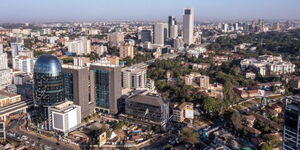Anyone can start a Non-Governmental Organisation (NGO) in Kenya, but you require a well-thought-out plan and marketing strategy in order to succeed.
You need to have a deep passion for the cause, entrepreneurial skills, a business plan, a method of measuring results, and good management skills.
This article outlines everything you need to know about how to start an NGO in Kenya.
What is an NGO?
An NGO in full is a non-governmental and non-profit organization.
A group of volunteer local citizens or an international body may come together to form an NGO in Kenya.
According to the NGO Coordination Act, all NGO’s have to be registered under the NGO Coordination Board.
Basics of setting up an NGO
The basic steps involved in forming an NGO in Kenya are;
1. Identifying your goals
2. Registration
3. Marketing the organisation.
Identifying your goals
Before starting an NGO in Kenya, you need to know if there is a need for it.
Creating an achievable goal is critical to an NGO starting process.
Do you want to end hunger in Kenya? Are you looking to eradicate poverty or disease? While these causes may seem ideal, you will never solve these problems.
In fact, many donors will shy away, knowing that the problem is simply too big for your organisation to solve.
Focus on smaller causes in areas that you can impact change even with little help.
For example, your goal could be to provide learning material to needy students in your constituency.
You can also undertake projects like helping in the eradication of water hyacinth in Lake Victoria, or even saving an endangered species of wild animals.
Be careful not to settle on a goal that falls under the responsibilities of the government.
Another thing to consider is whether you are starting a non-profit business or a charity.
As a charity, you will be donating funds directly to those who need it. A non-profit business, on the other hand, will have an inventory.
The path you choose should also help you determine the partners you will work with.
Local knowledge is important, no matter the type of organisation you want to create.
You will want to engage with the locals and have contacts in the area. Without knowledge of the area you intend to serve, you would not be able to run your non-profit organisation successfully.
Accessing funds for an NGO
It is a constitutional requirement to disclose the source of funding for your NGO.
This means that before you register an NGO, you must have known where you will get your funding.
Some of the places you can get funds include:
1. Personal savings or income
2. Government or organisation grants
3. Income-generating activities for the organisation
4. Donors and well-wishers
If you are committed to building your organisation, you should have a plan for running it until it becomes sustainable.
Dependency can sometimes have a negative impact not only on your organisation but also on the people you are trying to help.
Running an NGO in Kenya requires funds to reach people who need your help.
You will also need to pay your staff if your venture is too big to be carried out by only one person.
It is worth noting that the amount of money in an organisation’s coffers doesn’t determine its success.
You have to minimize monetary requirements and focus on places you can help without needing a lot of money.
How to market an NGO
The following tips will help you bring your NGO in front of potential well-wishers and donors who would like to support your cause:
1. Identify your niche
Determine which category your organisation falls into and check out the strategies used by other organisations in a similar field.
You should then utilize strategies that work or come up with a better idea.
2. Develop marketing material
Create brochures, voice and video adverts, and ideas for print adverts for your organisation.
You can outsource great graphic designers to make your marketing material appealing.
3. Develop an internet marketing presence
Get a website and social media pages in the most used social media websites.
Ensure to include crucial information such as your cause and the history of your organisation.
You can include videos showcasing what you’ve done and what you intend to do.
Provide an option for donations or partnerships on the platforms.
4. Reach out to organisations that share a similar cause
Find organisations that have supported similar activities in the past and present your organisation’s goals to them.
5. Find partners
Find Non-Profits in a similar field and present proposals for partnerships.
You don’t have to be doing the same thing. If your organisation is about enabling people in remote areas to get access to clean water, you could partner with an organisation that provides food relief to people in similar areas.
Not only will you save on logistics, but you will also get more information about the areas you intend to serve.
6. Crowdfunding
Make use of platforms such as GoFundMe and Patreon to fundraise for the causes you care about.
How to register an NGO in Kenya
Here are a few simple steps to follow in order to register an NGO in Kenya:
Name Search
The first step is to conduct a name search for the name you have decided to use in order to register your NGO.
Name search is mainly carried out at Huduma Centers. All that one has to do is to fill Form F2.
This activity will cost you only Ksh1000. Upon confirmation of a name, the approved name is reserved for sixty days.
In case of expiration of reservation period before proceeding to the registration phase, the reservation can be renewed for Ksh1000.
Qualifications for registering an NGO
1. The NGO would have to demonstrate an act of public good that it will benefit and improve the lives of the population and the citizens of Kenya.
2. There should be a Kenyan among the 3 top three officials when registering an International NGO.
3. At least One third (1/3) of all the board members MUST be Kenyan for all foreign-based NGOs
Procedure to follow in order to register an NGO
1. After the name search, one is required to submit 2 copies of duly filled Form 3.
2. In order for the forms to be accepted, they have to be in block letters.
3. One will also need to fill Form 1 stating the organization’s contact person.
4. A notification of the location of the office and postal address of the NGO signed by three top officials of the NGO
5. A payment of Kes.400 should accompany form, 1 and 3 during submission.
6. A submission of 2 passport size (2*2) coloured, taken on a white background for the 3 top officials and 2 other board members.
7. The passports should contain the names of the persons and their organizations at the back.
Other Documents required include:
1. Copy of name reservation form duly paid
2. Copies of ID/Passport and KRA PIN Certificates for the 5 proposed officials and Board members
3. Submit a copy of a valid police clearance (certificate of Good Conduct including the fingerprints and receipts) for Kenyans. Equivalent notarised clearance certificate for Foreigns from their Country of Origin(MUST not be more than six (6) months old).
4. 2 copies of the Constitution of the proposed NGO/INGO signed by both the proposed three(3) officials and the two (2) board members.
5. Minutes authorizing the filing of the application with a specific agenda and resolution to register the organization as an NGO with the NGOs Board.
NB: Election of the interim officials MUST form part of the Agenda.
6. Proposed one year budget
7. The proposed NGO has to present a forwarding letter to accompany this application.
9. Original signatures of the officials and members as applicable should also be presented during the application
10. A processing fee of Ksh16,000 for national NGOs and Ksh30,000 for International NGOs.
11. The official has to present information regarding the line ministry in which the proposed NGO will be operating in.
12. Memorandum of Understanding between the organization and the donors (If any). In case of an organization registering a branch of an organization already registered locally or overseas
Once all this information has been gathered, one is now ready to make an application for registration of an NGO.
The next step is to present all these documents and information to the NGO Coordination Board and wait for its approval.












